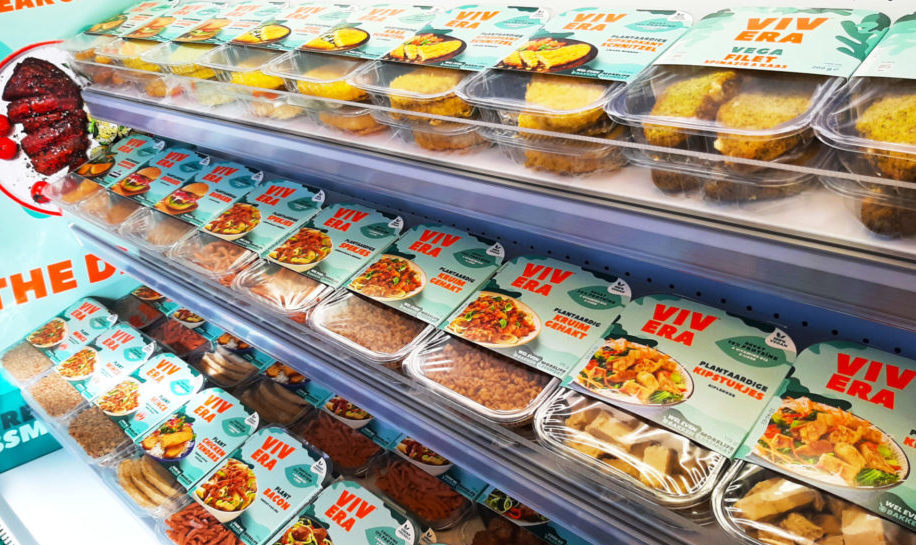JBS, the world’s biggest meat processor, has agreed to acquire Netherlands plant-based protein brand Vivera in a deal worth €341 million ($409 million).
The Brazilian meat firm said the acquisition “strengthens and boosts” its position in the burgeoning alt-protein market by adding a brand to its existing animal-free portfolio that is “well-established in consumer preference.” The JBS group’s current plant-based offerings include the Seara Incrivel range and Planterra’s Ozo Foods.
As part of the deal, São Paulo-based JBS is set to take over Vivera’s three factories, as well as its R&D center, all of which are located in the Netherlands. Vivera will remain as a standalone business with its current management in place.
According to a statement, Vivera is Europe’s third-largest plant-based protein producer, holding “relevant market share” in its home country in addition to Germany and the UK.
Founded in the early 1990s and based in the small east Netherlands town of Holten, it offers a range of products including chicken-style nuggets and goujons, sausages, and ground ‘meat’. These are made from protein that has been derived from soybean, wheat, rice, and chickpea, among other sources.
Its products are sold in 25 countries through major retailers including Tesco and Ocado.
“This acquisition is an important step to strengthen our global plant-based protein platform. Vivera will give JBS a stronghold in the plant-based sector, with technological knowledge and capacity for innovation,” said JBS global CEO Gilberto Tomazoni.
In a statement on its website, the Dutch company said it “[considers] it a huge compliment that the largest protein company and second largest food producer and meat manufacturer in the world has chosen Vivera to bring about [change in the] nutritional system.”
The tie-up between JBS and Vivera is just the latest example of a traditional animal protein company using acquisitions or venture funding to secure a bigger slice of the expanding market for slaughter-free protein.
These strategic moves are not only aimed at responding to rising consumer demand, but also at meeting sustainability targets, given that meat production is now viewed as a major contributor to climate change, biodiversity loss, and even pandemic risk.
US-based meat firm Tyson Foods was an early investor in plant-based patty maker Beyond Meat, but sold its stake before the latter’s 2019 IPO. Tyson has since launched its own Raised & Rooted brand offering both pure plant-based products and ‘hybrids’ containing a mixture of plant-based and animal-derived protein. It has also invested in US cell-cultured beef startup Memphis Meats.
Swiss meat processor Bell Food Group has backed another startup culturing animal protein from cells: the Netherlands’ Mosa Meat.
Moving from turf to surf, Asian seafood giants Thai Union and Vinh Hoan have invested in cell-based seafood specialists BlueNalu and Avant, respectively. Thai Union has also launched its own plant-based meat and seafood alternative range called OMG Meat.
Vivera itself had previously been part of Enkco Foodgroup, the flagship company of which was a manufacturer of chilled and frozen animal meat products. However, the group sold off the Enkco business in early 2019 in order to focus on plant-based proteins, rebranding as Vivera Foodgroup in the process.
JBS’s board has approved the Vivera acquisition, which is still awaiting antitrust clearances as well as the green flag from Vivera’s employee council.
Comment? News tip? Story idea? Email me at [email protected] or find me on LinkedIn and Twitter





